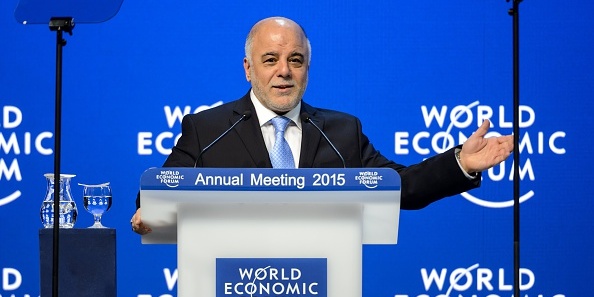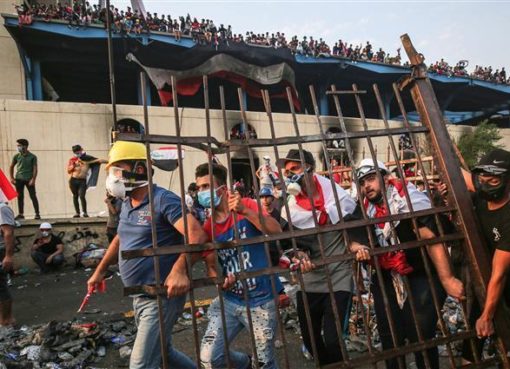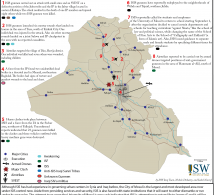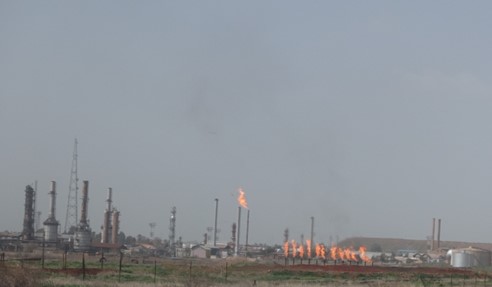By Ben Van Heuvelen and Ben Lando of Iraq Oil Report
Published Monday, August 7th, 2017
The Iraqi government has cleared two significant hurdles in its urgent quest to attract investment capital, on the heels of Parliament’s recent passage of an amended 2017 budget law.
Iraq has successfully marketed a $1 billion unsecured bond, and the International Monetary Fund (IMF) announced that it approved Iraq to receive an $825 million loan disbursement as part of a three-year program – flows of financing that could help establish an encouraging precedent for international investors.
“Iraq now has a story in the market – a benchmark – and is now able to finance based on that benchmark,” said Hussain Qaragholi of Deutsche Bank, which was joint lead manager of the recent bond issuance. “This should open financing sources for the reconstruction of the country moving forward.”
Lenders are looking more favorably at Iraq partly because of the government’s efforts to improve its fiscal management. The IMF in particular gained crucial confidence after the Parliament in late July ratified an amended 2017 budget, which further trims several categories of spending and allocates money to pay off about $9 billion in debt, including to international oil companies (IOCs).
The new budget authorizes 107.09 trillion Iraqi dinars ($90.6 billion*) in spending, and anticipates 82.07 trillion dinars ($69.4 billion) in revenues, according to a copy of the law published online by Parliament. Iraq is still expecting an average of 3.75 million barrels per day (bpd) in total exports, and has slightly raised its oil price forecast, from $42 per barrel in the initial 2017 budget up to $44.40.
“The important part was approval by the Parliament of the supplementary budget, to correct some of the slippages that were observed in 2016, and to make room for arrears repayment,” said Christian Josz, deputy division chief of the IMF’s Middle East and Central Asian department.
Under the IMF’s three-year Stand-By Arrangement (SBA) program, Iraq must meet fiscal reform benchmarks in order to receive a series of loan disbursements totaling about $5.34 billion. The government’s participation in the SBA is also designed to reassure other lenders, opening up access to financing beyond the IMF.
“Bond holders are sensitive to macro stability,” Josz said. “My guess is that [Iraq’s participation in the SBA] has a positive impact on their assessment.”
Several investors and officials involved in Iraq’s recent bond offering characterized it as a success. Iraq’s new five-year bond offered a coupon of 6.752 percent and garnered about $6.7 billion worth of demand, according to Qaragholi.
“The original [investor] interest in the [2017] bond was very high,” Qaragholi said. “When we first went out to the market with initial price thoughts, we thought the coupon was going to be about 7 percent. But because of high demand, they were able to issue at a substantially reduced cost, at 6.75 percent.”
Those details were corroborated by three investors and two other officials familiar with the offering.
“The yield is quite good for Iraq,” said one investor.
Progress
Iraq has come a long way since 2015, when it last tried to issue a bond. The self-proclaimed Islamic State (IS) militant group had just conquered part of the country, and oil prices had fallen steeply; after years of poor fiscal management, the economy could not handle those shocks and fell into crisis.
Bond investors viewed the country as such a high risk that they were only willing to lend if interest payments were far higher than the government could stomach. Iraq’s only other unsecured debt, a 22-year bond that was issued in 2006, was then trading with a yield over 11 percent.
“One of the lessons [the Iraqis] got was – international investors said, ‘We like Iraq, but frankly, after hearing this story, we think you’re probably better served to go to the IMF first,'” Qaragholi said. “To the credit of the government of Iraq, that’s exactly what they did.”
Under the SBA, Iraq’s top financial officials meet regularly with IMF staff to assess the government’s adherence to a plan for improving fiscal management, including tightening spending, raising non-oil revenue, executing the budget, and repaying debts.
The government has also benefited from its partnership with the U.S. Agency for International Development (USAID), which helped ease Iraq into the bond markets earlier this year with a separate $1 billion bond offering. That bond is guaranteed by the U.S. government, and therefore had a much lower coupon, of 2.2 percent.
Qaragholi said the two $1 billion bonds should be viewed as a package.
“This is meant to be a $2 billion issuance – a guaranteed bond… and this second, unguaranteed bond,” Qaragholi said. “The cost of borrowing is an average of 4.45 percent. It’s a substantial achievement for the Republic of Iraq.”
Unsolved problems
While investor perceptions have clearly improved over the past two years, multiple investors said Iraq’s cost of borrowing has gone down largely due to international market factors far outside of the government’s control.
“This is more due to global emerging market bond demand and some recovery in oil prices than changes in Iraq,” one investor said.
The government’s cost of borrowing is still high compared to the most advanced economies. The wide spread between Iraq’s guaranteed and unsecured bonds highlights the risk premium that Iraq has to pay when borrowing.
Part of the problem is that, despite recent fiscal reforms, Iraq still lags far behind the standards set by the world’s most advanced economies.
“Further fiscal consolidation was achieved in 2016, but at a slower pace than programmed because of weak control of investment expenditure and humanitarian needs,” the IMF said in an Aug. 1 statement. “To move the program forward, the authorities are implementing strong corrective measures as prior actions and are committed to further fiscal measures in 2018 to ensure external and debt sustainability.”
Such measures are difficult to implement, however, especially after Parliament held a no-confidence vote that ousted Finance Minister Hoshyar Zebari, who has not been replaced. Prime Minister Haider al-Abadi is officially the acting Finance Minister, but he does not appear to have deputized any single official with that portfolio.
“It’s not an ideal situation,” Josz said. “For us there is no point person. We deal with the budget director, director of public debt, a team from the prime minister’s office, and the Central Bank governor…. But with the team they have, they’ve been able to put together corrective actions.”
Passage of the supplemental budget was a key step, Josz said. The IMF was skeptical of the initial 2017 budget partly because it allocated an unrealistically low amount of money for government salaries. The new budget raises that allocation while cutting most other categories of spending by over 2 percent.
The new budget also requires Iraq to reckon with the 10.9 trillion Iraqi dinars ($9.22 billion) of debt it had accumulated by the end of 2016. Most of that balance will be paid this year, with all arrears scheduled for settlement by 2018.
Iraq has accumulated 4.2 trillion dinars ($3.6 billion) in current spending arrears, according to Josz, much of it related to electricity purchases from Iran; and 6.7 trillion dinars ($5.7 billion) worth of investment arrears, including debts to IOCs.
Paying IOCs
Josz said that Iraq has for the most part adhered to an IMF requirement of staying current with IOC payments.
“The progress is there,” Josz said. “Two years ago, the arrears outstanding to IOCs for more than 90 days – they were close to $3 billion. Then it went down, in June of last year, to $1.6 billion. And in March [this year], we’re at $447 million.”
One technical hurdle standing in the way of timely payment, Josz said, is that IOCs typically get paid in oil. But if a given company has not run up invoices equivalent to a full tanker, the government might defer payment to the following quarter.
As a result, Iraq has requested that the IMF modify the terms of the SBA: instead of zero debt to IOCs, the government wants to cap its maximum debt at $500 million.
“We will monitor that, and we will see if that story jibes with reality.” Josz said. “For the past, they show convincing evidence of outstanding bills to IOCs that basically were not enough to fill a ship.”
* EDITOR’S NOTE: This article uses a currency conversion rate of 1,182 Iraqi dinars to the U.S. dollar, consistent with the Iraqi budget law. The official exchange rate varies slightly, and the actual street exchange rate is usually 1,200 dinars to the dollar or more.
—








Comment here